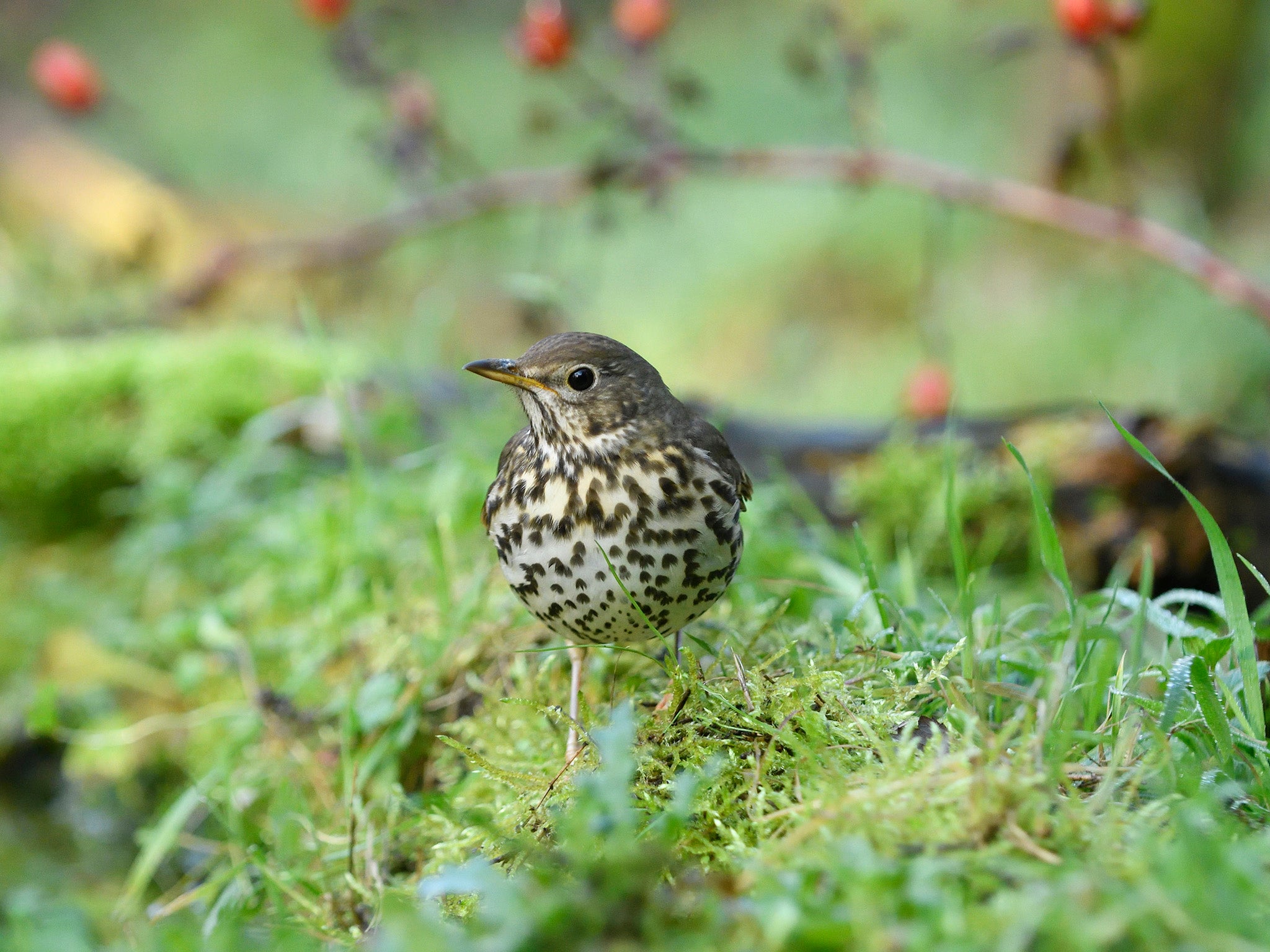Dearth of worms blamed for dramatic decline in UK songbird population
Britain’s first farmland worm survey reveals nearly half of English fields lack key types of earthworm and may help explain a 50 per cent fall in song thrush numbers
Your support helps us to tell the story
From reproductive rights to climate change to Big Tech, The Independent is on the ground when the story is developing. Whether it's investigating the financials of Elon Musk's pro-Trump PAC or producing our latest documentary, 'The A Word', which shines a light on the American women fighting for reproductive rights, we know how important it is to parse out the facts from the messaging.
At such a critical moment in US history, we need reporters on the ground. Your donation allows us to keep sending journalists to speak to both sides of the story.
The Independent is trusted by Americans across the entire political spectrum. And unlike many other quality news outlets, we choose not to lock Americans out of our reporting and analysis with paywalls. We believe quality journalism should be available to everyone, paid for by those who can afford it.
Your support makes all the difference.Britain’s first farmland worm survey has revealed that nearly half of English fields lack key types of earthworm and may help explain the alarming decline of one of the country’s most loved songbirds.
The citizen science project, in which farmers dug for worms in their own fields, has prompted 57 per cent of them to pledge to change their soil management practices – a move that may benefit the song thrush, for whom worms are a vital food source.
The English population of the song thrush, popular for both its voice and its habit of using stones as an “anvil” to smash the shells of its other favourite food – snails – declined by more than 50 per cent between 1970 and 1995, leading to it being listed as a species of conservation concern.
The #60minworms survey, led by Dr Jackie Stroud, a Natural Environment Research Council (Nerc) soil security fellow at the Rothamsted Research centre, adds to the evidence that the song thrush is being affected by a reduction in farmland earthworm populations, along with the loss of hedgerow nesting sites.
In a statement about the survey, Rothamsted Research said: “The results indicate widespread, historical over-cultivation, and may explain observed declines in other wildlife, such as the song thrush, that feed on these worms.”
Stressing the importance of earthworms, Dr Stroud added: “Earthworms play vital roles in plant productivity and are great bird food as well. They are really important in our soil systems.
“They influence carbon cycling, water infiltration, pesticide movement, greenhouse gas emissions, plant productivity, the breeding success of birds and even the susceptibility of plants to insect attack.

“Decisions made above the ground, whether by farmers or policy makers, influence the billions of earthworms that are engineering the soil ecosystem below the ground.
“But we’ve never really known the types or the numbers across farmland soils in this country.”
The survey involved mobilising farmers to prospect for worms in a total of more than 1,300 hectares of soil, by digging a series of 20 x 20 x 20cm pits across their land in the spring of 2018.
The results, published in the PLOS One journal as “Soil health pilot study in England: Outcomes from an on-farm earthworm survey”, found “most fields have basic earthworm abundance, but 42 per cent may be overworked”, producing scarcity or absence of surface-dwelling and deep-burrowing worms.
Dr Stroud said the absence of deep-burrowing worms from 16 per cent of fields was of particular concern, because they are “drainage worms” with vertical burrows that aid water infiltration and help stop fields becoming waterlogged.
She said: “The deep-burrowing worms have slow reproduction rates, so recovery in their populations could take a decade under changed management practices. In fact, we know very little about earthworm recovery rates.”
The survey found that the average field had nine earthworms in every spadeful of soil, with top fields having three times that number. One in 10 fields had high earthworm numbers of more than 16 worms per spadeful.
Dr Stroud added that empowering farmers to survey their own soils would save about £14m in soil health monitoring if rolled out nationally.
Other culprits have been suggested for the decline of the song thrush and other songbirds, including increasing numbers of magpies, which are known to prey upon on the eggs and nestlings of songbirds.
A survey conducted by the British Trust for Ornithology on behalf of the Royal Society for the Protection of Birds (RSPB), however, found songbird numbers were no different in places where there were lots of magpies and where there were few of them.
The charity said the survey data suggested song thrushes were just as likely to have declined on farmland where the numbers of magpies and sparrowhawks had also decreased.
In less rural areas, the RSPB says that estimates of the proportion of eggs and nestlings in the summer diet of urban and suburban magpies have varied between three per cent and 38 per cent by weight, with most studies suggesting it is towards the lower end of the scale.
Subscribe to Independent Premium to bookmark this article
Want to bookmark your favourite articles and stories to read or reference later? Start your Independent Premium subscription today.

Join our commenting forum
Join thought-provoking conversations, follow other Independent readers and see their replies
Comments